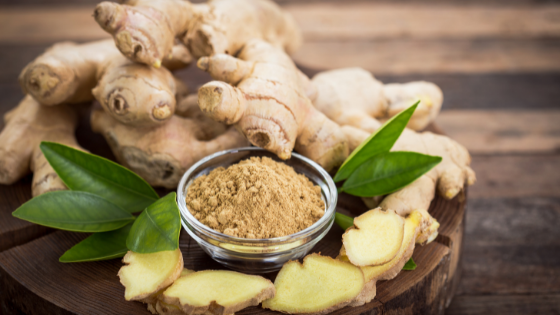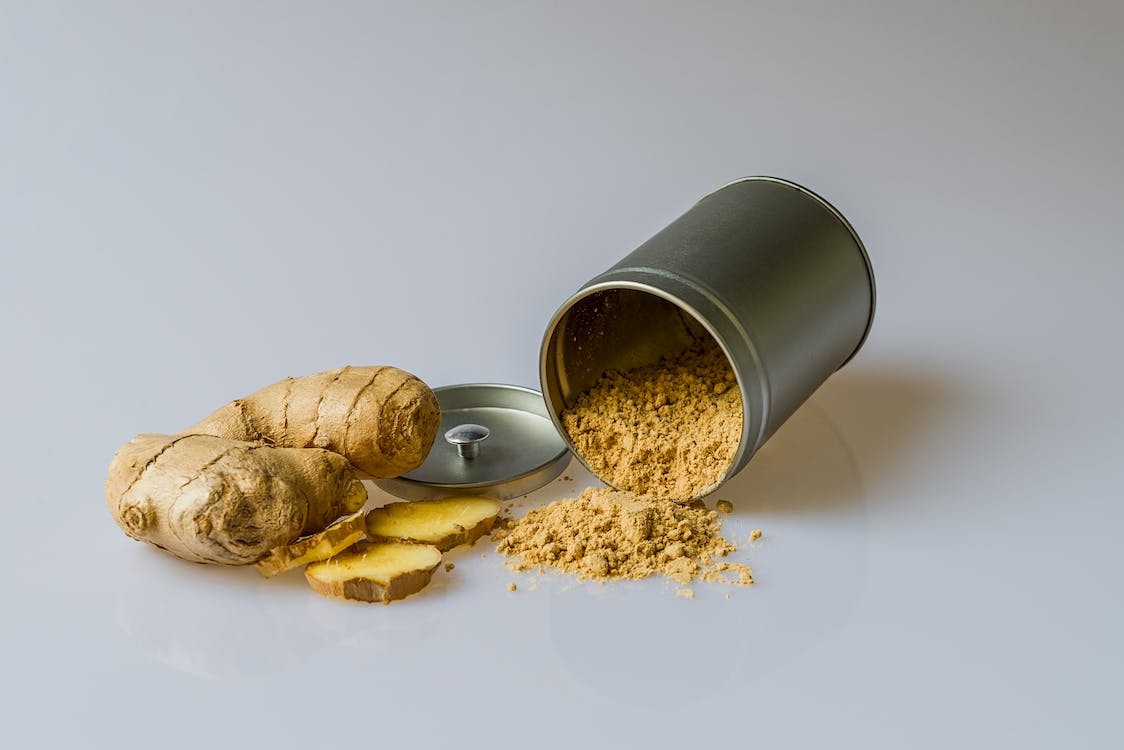Ingredients of healthy kitchen- Ginger

2024-02-26 08:24:34
Ingredients of healthy kitchen- Ginger
You’ve probably tasted how calming ginger-infused drinks can be when you’re feeling under the weather. According to Ayurveda, ginger is “a medicine in itself.”
It’s easy to see why when you consider all of ginger’s incredible health advantages.
Immunity & Ginger Connection

For years, this ‘miracle spice’ has been used to relieve general flu symptoms, throats infections, and stuffy noses.
The natural oils and, most crucially, a molecule called gingerol, are responsible for the majority of ginger’s health benefits, as well as its distinct scent and flavour.
Gingerol and a few other beneficial molecules found in ginger, particularly one called shogaol, relax the muscles of our airways, alleviating cold symptoms. Asthma sufferers may benefit from this.
Furthermore, ginger contains trace amounts of chemicals that have been shown to be useful against the flu virus and RSV, a common cause of respiratory illnesses.
Gingerol is also thought to make us sweat, which produces dermicidin, a powerful germ-fighting chemical that protects us from germs like E.coli and Staphylococcus aureus (type of bacteria that causes common skin infections), to mention a few.
Digestive Health & Ginger Connection

Ginger is also used to relieve a variety of nausea symptoms. Even if nausea is a side effect of any drug, ginger is an excellent natural alternative to anti-vomiting medications.
Throughout history, ginger has been utilized to relieve the symptoms of gastrointestinal distress. This also includes chronic indigestion, which is a persistent ache and discomfort in the stomach caused by food not being emptied quickly enough. This process is accelerated with ginger, which eliminates the soreness.
Muscles & Ginger Connection

While ginger does not appear to have an immediate effect, it does appear to aid with muscle discomfort after prolonged exercise.
Muscle contractions are the root cause of menstrual cramps. When ginger was given to women on the first three days of their menstrual period, it reduced menstrual pain as effectively as two medicines called mefenamic acid and ibuprofen.
Ginger’s Key Role In Lifestyle Diseases
1] Cancer and Heart Disease:

According to certain animal and human research, ginger consumption reduces bad cholesterol (LDL) and free fatty acids in the bloodstream. If not, both of these substances will lodge in blood vessels and other organs, producing issues such as heart disease.
In terms of heart disease, a 12-week study found that ginger reduced some heart disease risk factors in diabetic patients. 2 grammes of ginger powder also reduced ‘fasting blood sugar’ (our blood sugar level before eating) by 12% and improved ‘HbA1c’ significantly (which is a long-term indicator of blood sugar levels).
What this means is that ginger is extremely helpful in controlling blood sugar levels in diabetics.
Although research on ginger is limited, there is some indication that it may be useful in the treatment of colon and pancreatic cancers. In any event, it’s becoming a hot study topic as an add-on for treating many types of cancer.
2] Obesity:

Ginger may also help people lose weight, which is a leading cause of lifestyle diseases. Because the evidence is currently limited, this isn’t certain. However, a study found that even a single intake of ginger can help burn fat.
3] Inflammation:

Many of the lifestyle diseases we see today, ranging from allergies to cancer, are caused by inflammation . Gingerol is a potent antioxidant, making it capable of combating the inflammation induced by free radical damage in our bodies. Here are a few instances of how this affects things:
– Alzheimer’s disease: chronic low-grade inflammation can hasten the ageing process, which may be responsible for the changes in the brain that occur during Alzheimer’s disease. Ginger has been shown to improve brain function and protect against undesired changes as well as age-related deterioration.
– Arthritis: Arthritis is the inflammation of the joints that produces friction and pain in people with arthritic joints. Adding fresh ginger to your meals on a regular basis may assist.
Ginger In Our Diet
Here are some suggestions for making the most of ginger on a daily routine!
– When it comes to determining whether cooking reduces ginger’s antioxidant qualities, the results are mixed. It’s preferable to incorporate it in our diet in both fresh and cooked forms until we learn more. Vegetable juices are a great way to use it.
– If you’re having trouble with muscle soreness, consider eating dry ginger, which has more shogaols, which are the most effective component for relaxing muscles. This is also true for illnesses like asthma, which are influenced by the muscles in our airways.

– While legumes such as lentils, peas, chickpeas, beans, and soybeans are high in protein, they might cause stomach problems in some people. Ginger not only improves the flavour of the food, but it also helps with gastrointestinal difficulties.
– For osteoarthritis sufferers, putting ginger to the skin with mastic, cinnamon, and sesame oil decreases pain and stiffness, according to one study.
Given how it protects us from both everyday troubles and major diseases, if you aren’t using ginger to its best capacity in your kitchen, it’s probably time to start!
Consult an expert nutritionist on my team at +91-9743430000 who can help you understand and identify foods that works best with your body and help you achieve your health goals.
Ryan Fernando is an Award-winning celebrity Sports Nutritionist with 2GUINNESS world record and 2 Olympic medals under his belt. His client list include Olympic wrestler Sushil Kumar, cricketer Shikhar Dhawan & bollywood superstars Aamir Khan & Abhishek Bachchan. He is Chief Nutritionist at QUA Nutrition Signature Clinics.




